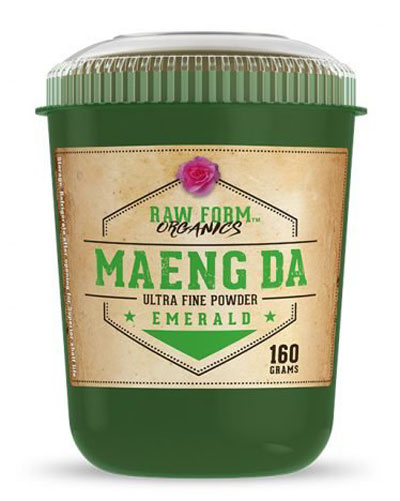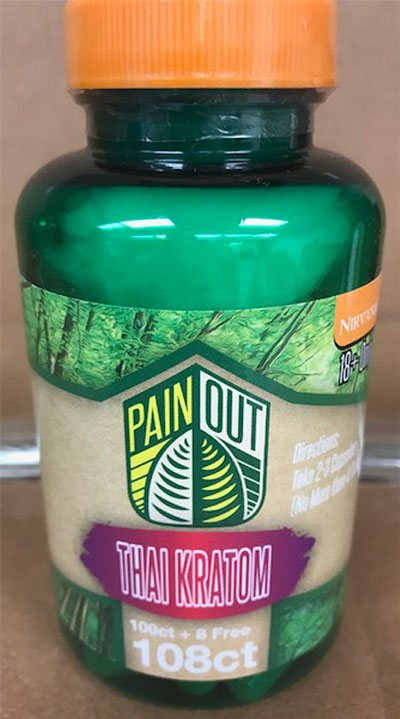Las Vegas Kratom Marketer Rolls Dice On FDA's Mandatory Recall Authority
This article was originally published in The Rose Sheet
Executive Summary
FDA for the first time exercises its mandatory recall authority over food and supplement products to order Triangle Pharmanaturals, which opened for business in Las Vegas in April 2017, to recall all of the kratom-containing products it has distributed and to cease distributing additional products.The agency also notes in the announcement that it continues to scrutinize kratom's safety unrelated to contamination.
A Las Vegas dietary supplement marketer in business for one year might not reach its second after ignoring FDA's request to recall kratom products contaminated with salmonella.
FDA on April 3 announced that for the first time it exercised its mandatory recall authority over food and supplement products to order Triangle Pharmanaturals LLC to recall all the kratom-containing products it has distributed and to cease distributing additional products. FDA included in the announcement a statement about its scrutiny of kratom's safety unrelated to contamination.

The agency said it submitted a letter to Triangle Pharmanaturals on March 30 about kratom products it distributed that were found to be contaminated with salmonella and offering opportunities for an "informal hearing" with FDA officials to discuss the findings. A second letter to the firm on March 31 offered a final opportunity for a hearing before a recall order would be made.
Additionally, FDA officials were denied access to the firm's records relating to potentially affected products and its staff refused to discuss the agency's findings before it issued a mandatory recall order on April 2.
"Our first approach is to encourage voluntary compliance, but when we have a company like this one, which refuses to cooperate, is violating the law and is endangering consumers, we will pursue all avenues of enforcement under our authority,” said FDA Commissioner Scott Gottlieb in the agency's announcement.
FDA on March 23 identified Triangle Pharmanaturals and a second firm operating at the same address in Las Vegas, Pure Distribution LLC, as the distributors of kratom products sold by an Oregon retail chain that tested positive for salmonella in analysis by the state's Public Health Division and by the agency. (Also see "Ion Spectrometer Improves FDA's Import Screening: Health And Wellness Industry News" - HBW Insight, 26 Mar, 2018.)
Triangle Pharmanaturals' products potentially contaminated with salmonella are branded as Raw Form Organics Maeng Da Kratom in Emerald Green, Ivory White Ruby Red varieties, although FDA says it "understands [the firm] may manufacture, process, pack and/or hold additional brands of food products containing powdered kratom, including powder and encapsulated powder forms."
A representative for Triangle Pharmanaturals could not be reached to comment. Nevada state records indicate the firm was registered to operate on April 5, 2017.
The recall order states that in the event Triangle Pharmanaturals fails to comply with the lengthy and detailed requirements listed, FDA is authorized to conduct other enforcement against the firm "as deemed necessary."
While FDA gained mandatory recall authority for food and supplement products under the Food Safety Modernization Act (Public Law 111-353) enacted in 2011, the agency previously had not been compelled to follow through with recall orders. Two other firms, supplement marketer USP Labs LLC and a pet food company, voluntarily recalled products after first declining FDA's request and then being notified that the agency intended to begin mandatory proceedings against them.
USP Labs, which is not affiliated with US Pharmacopeia, did not halt distribution of sports nutrition supplements containing the stimulant 1,3-dimethylamylamine during FDA's enforcement against numerous marketers in 2012. While other firms complied with FDA's warning about DMAA, USP Labs attempted to convince the agency of the ingredient's safety before FDA notified it of an impending recall order. (Also see "U.S. Military Investigates Supplement Ingredient DMAA, Bans Sales" - Pink Sheet, 9 Jan, 2012.)
Similarly, FDA in 2013 required a recall after vitamin and supplement contract manufacturer Kabco Pharmaceuticals Inc. violated a consent decree to stop distributing products following good manufacturing practices warnings. Because the consent decree with Kabco stipulated that the agency could order the firm to recall products if it were found in violation, so the recall was not made under the mandatory recall authority established by FSMA. (Also see "Mandatory, Voluntary Recalls Distress Supplement Firms" - Pink Sheet, 14 Aug, 2013.)
Lawmakers touted mandatory recall as an important tool in improving food safety and the supplement industry backed including the authority in FSMA, but FDA officials expected mandatory recalls would be rare since threat of the tool’s use can have as much enforcement power as its actual application, which includes civil penalties and requires that firms pay the costs of FDA’s oversight of the recall.
Latest Of Salmonella-Linked Recalls
The agency's order against Triangle Pharmanaturals came a day after Houston firm NutriZone LLC announced it is recalling four kratom supplements due to potential salmonella contamination. The NutriZione products were distributed under Pain Out and Nirvanio brands in Pennsylvania, Oklahoma, Washington, Missouri, Florida, Mississippi, California and Texas.

FDA reported in mid-March that salmonella infections it suspects are linked to kratom products had spread to 35 states and that 40 of 55 infected people who were asked about the botanical reported consuming it before getting sick. (Also see "Kratom Suspected In 35-State Salmonella Outbreak: Health And Wellness Industry News" - HBW Insight, 16 Mar, 2018.)
The salmonella strains found in Triangle Pharmanaturals’ products, are not currently linked to the outbreak, though all salmonella bacteria can cause the foodborne illness salmonellosis, FDA said.
Kratom Safety Debate Goes On
As it requests or orders kratom recalls due to salmonella contamination, FDA also is attempting to force off the market all products containing ingredients from the botanical. In its announcement on Triangle Pharmanaturals' recall, FDA said it "advises consumers to avoid kratom or its psychoactive compounds, mitragynine and 7-hydroxymitragynine, in any form and from any manufacturer" due to "concerning reports about the safety of kratom, including deaths associated with its use."
FDA contends evidence shows kratom affects the same opioid brain receptors as morphine and appears to have properties that expose people who use kratom to the risks of addiction, abuse and dependence. Conversely, it also says evidence does not support kratom's use as an alternative to pain medications or to treat opioid withdrawal symptoms because neither the herb nor its compounds "have been proven safe and effective for any use and should not be used to treat any medical conditions."
“We continue to have serious concerns about the safety of any kratom-containing product and we are pursuing these concerns separately," Commissioner Gottlieb says.
Kratom marketers and experts on the herb, however, says FDA should regulate it as a dietary ingredient rather than the health threat the agency claims it is. Kratom has a history of safe use similar to other botanicals but like other supplement ingredients, some products labeled as kratom are adulterated and should be removed from the market, they say. (Also see "Kratom Advocates Urge Industry Compliance, FDA And DEA Compassion" - HBW Insight, 7 Mar, 2018.)
The debate on kratom's safety continues after FDA completed evaluations of kratom compounds mitragynine and 7-hydroxymitragynine at the request of the Drug Enforcement Administration, which has proposed scheduling them as controlled substances. (Also see "DEA Proposal To Schedule Kratom Stirs Wave Of Opposition" - HBW Insight, 8 Dec, 2016.)
From the editors of the Tan Sheet. Our dietary supplement industry coverage now is published in the Rose Sheet, with articles emailed to readers daily and available on this page of the website.
